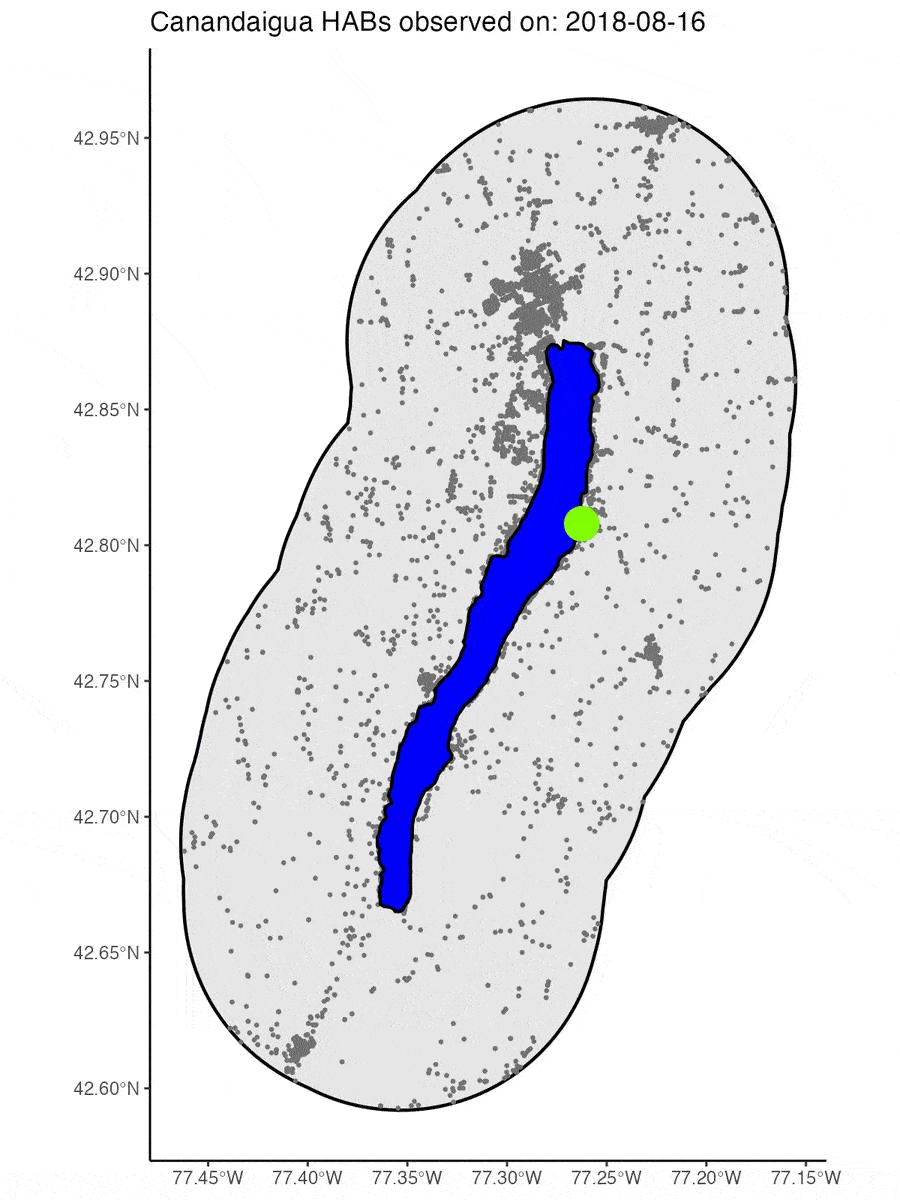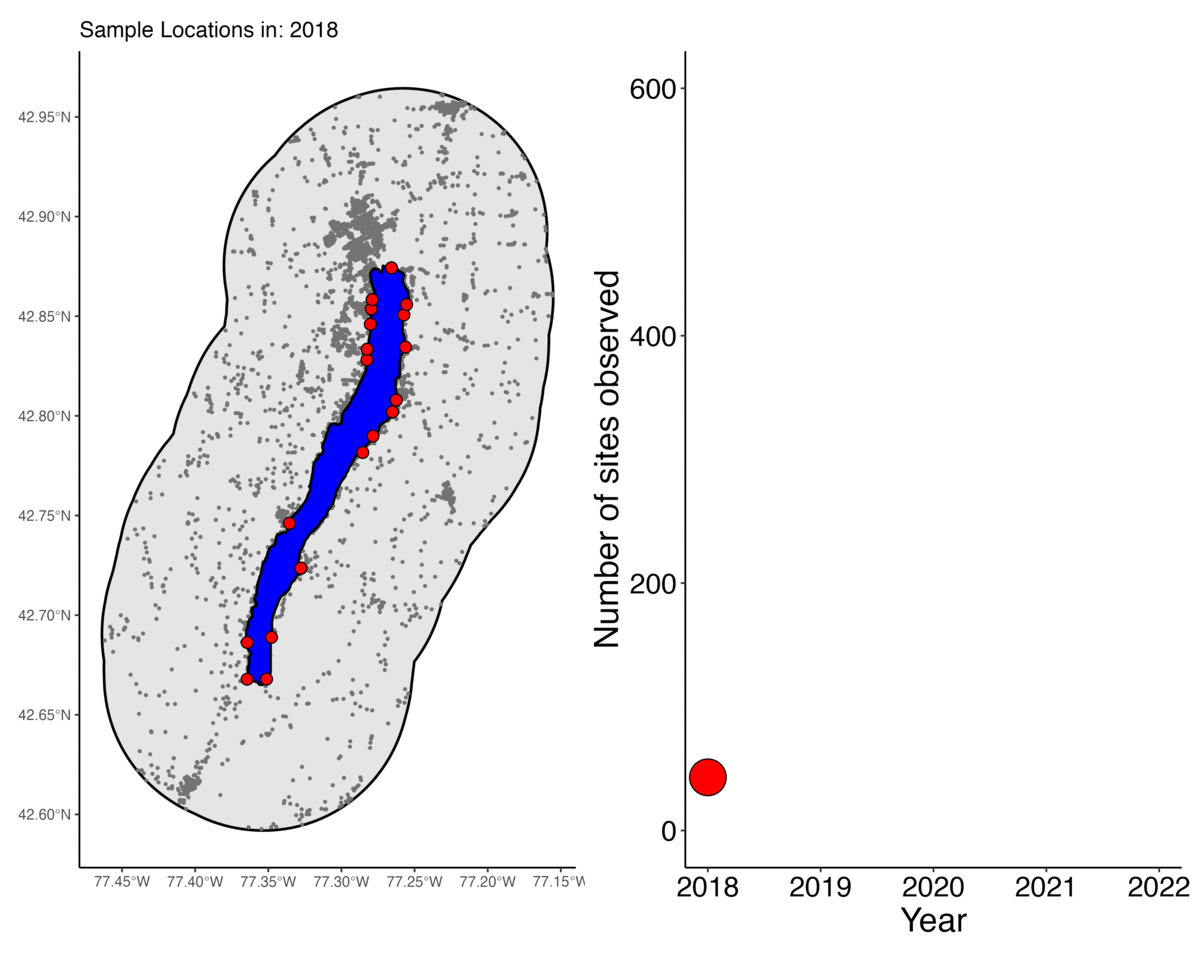top of page

Harmful algae blooms in Canadaigua Lake.

Scroll down to learn more

Lakes with excess pollution and warmer water grow more algae. Sometimes this algae can be in excess and cause problems.
Some excess algae contain toxins that are harmful to humans. Large pockets of these toxic algae in a lake are known as harmful algae blooms or HABs.


A HAB on Canadaigua Lake
Frequent HAB occurences hurt the economy of lakeside communities. Reducing HAB events is crucial for local municipalities to thrive.
Canandaigua Lake has recently experienced an increase in HAB events despite being considered a cold and clear lake.


Blue outline is Canadaigua Lake
Outer line is 5km radius from shore
Green dots represent blooms
Small grey dots are residential homes
HABs have occurred all across Canandaigua Lake. The Canadaigua Lake and Watershed Association have started a HAB monitoring program and have monitored HABs since 2018. HAB maps (left) can help identify their patterns over time and space.
The citizen science observations along Canadaigua Lake have increased dramatically since the inception of the HAB monitoring program in 2018. They have discovered many HABs that would otherwise go unnoticed. You can help with these efforts

Altogether, HAB monitoring indicates that blooms are a common occurrence near residential areas in Canadaigua Lake and reducing the lake's water quality. What steps can you take to help reduce their prevalence in the future?
In the short term, one small step that helps is removing waste along the lake shoreline that washes into Canadaigua Lake. Reduction in waste pollution can help improve water quality.

Do you want to contribute to improving water quality in Canadaigua Lake? You can by helping with our post-race trash pick up!
bottom of page

